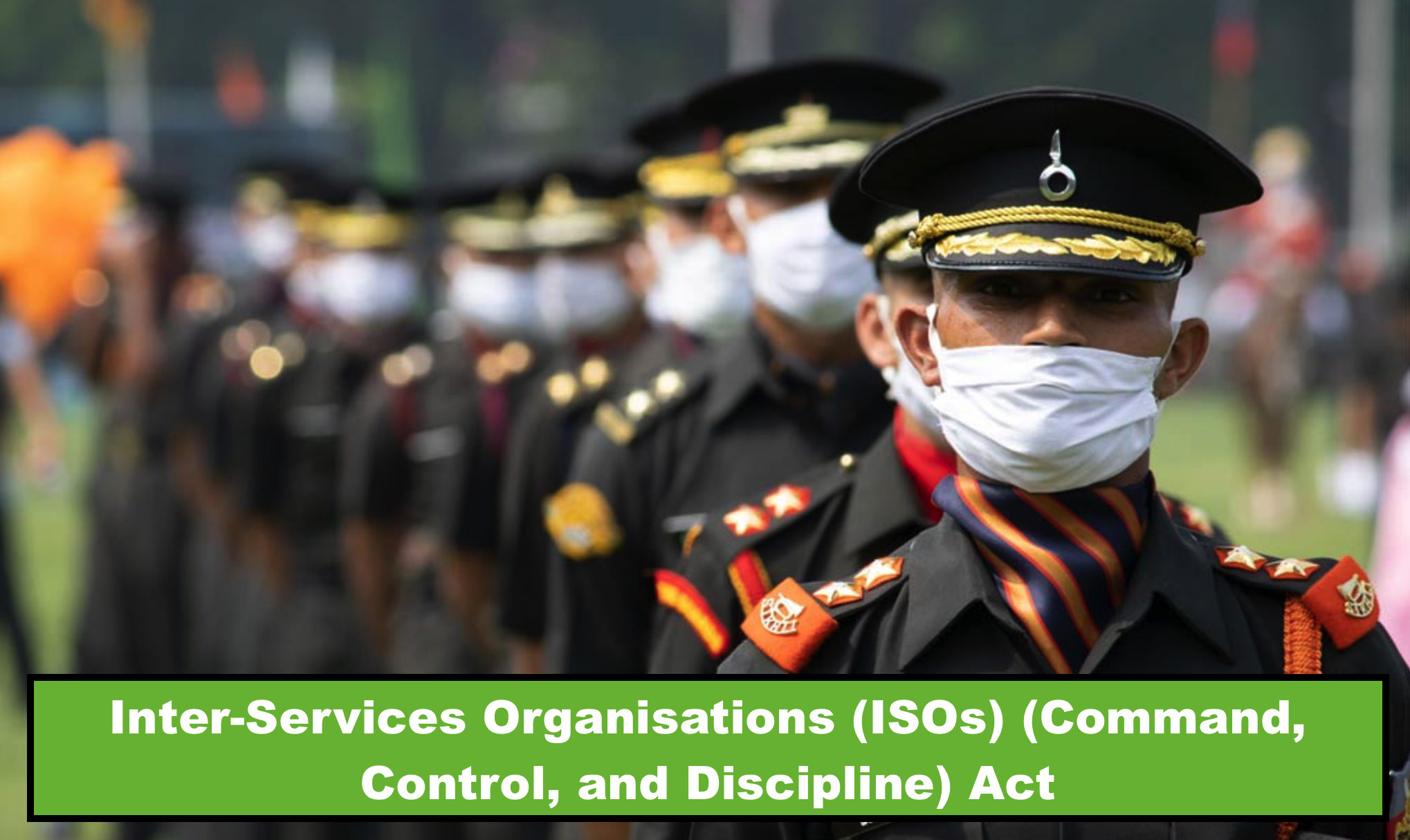Inter-Services Organisations (ISOs) (Command, Control, and Discipline) Act

- 11 May 2024
Why is it in the News?
The Inter-Services Organisations (Command, Control and Discipline) Act has been notified in a gazette and has been enforced with effect from May 10, the Defence Ministry said recently.
About Inter-Services Organisations (ISOs) (Command, Control, and Discipline) Act:
- During the Monsoon Session of 2023, both houses of Parliament passed a bill aimed at enhancing the operational efficiency and coordination of Inter-Services Organisations (ISOs).
- These organisations comprise personnel from the Army, Air Force, and Navy, such as joint training institutions like the National Defence Academy, National Defence College (NDC), Defence Services Staff College (DSSC), and the Andaman and Nicobar Command (ANC).
Key Provisions of the ACT:
- Inter-Services Organisation Establishment: Existing Inter-Services Organisations will be considered constituted under the Act.
- The central government may establish an Inter-Services Organisation comprising personnel from at least two of the following services: the Army, Navy, and Air Force.
- Control of Inter-Services Organisations: The Act empowers the Commander-in-Chief or Officer-in-Command of an Inter-Services Organisation to exercise command and control over its personnel.
- They are responsible for maintaining discipline and ensuring the proper discharge of duties by service personnel.
- Supervision of an Inter-Services Organisation will be under the purview of the central government.
- Commander-in-Chief Eligibility: Officers eligible for appointment as Commander-in-Chief or Officer-in-Command include:
- A General Officer of the regular Army (rank above Brigadier),
- A Flag Officer of the Navy (rank of Admiral of the Fleet, Admiral, Vice-Admiral, or Rear-Admiral), or
- An Air Officer of the Air Force (a rank above Group Captain).
- Commanding Officer Appointment: The Act establishes a Commanding Officer responsible for leading a unit, ship, or establishment within the Inter-Services Organisation.
- The Commanding Officer carries out duties assigned by the Commander-in-Chief or Officer-in-Command.
- They have the authority to initiate disciplinary or administrative actions for personnel within the Inter-Services Organisation.
Need for the Act:
- Theaterisation Drive: The enactment aligns with the ongoing push for theaterisation, a vital military reform aimed at optimizing resources for future combat scenarios.
- Existing Framework Challenges: Currently, armed forces personnel are governed by separate laws— the Air Force Act, 1950, the Army Act, 1950, and the Navy Act, 1957—resulting in disjointed disciplinary powers.
- Under the current setup, only officers from the same service possess disciplinary authority over personnel governed by the respective Act, leading to command, control, and discipline challenges.
- Financial Implications: The present framework entails time-consuming processes and financial expenditures for personnel transfers.
- The proposed legislation seeks to remedy these challenges by enhancing discipline enforcement, expediting case resolutions, and potentially saving public funds.
